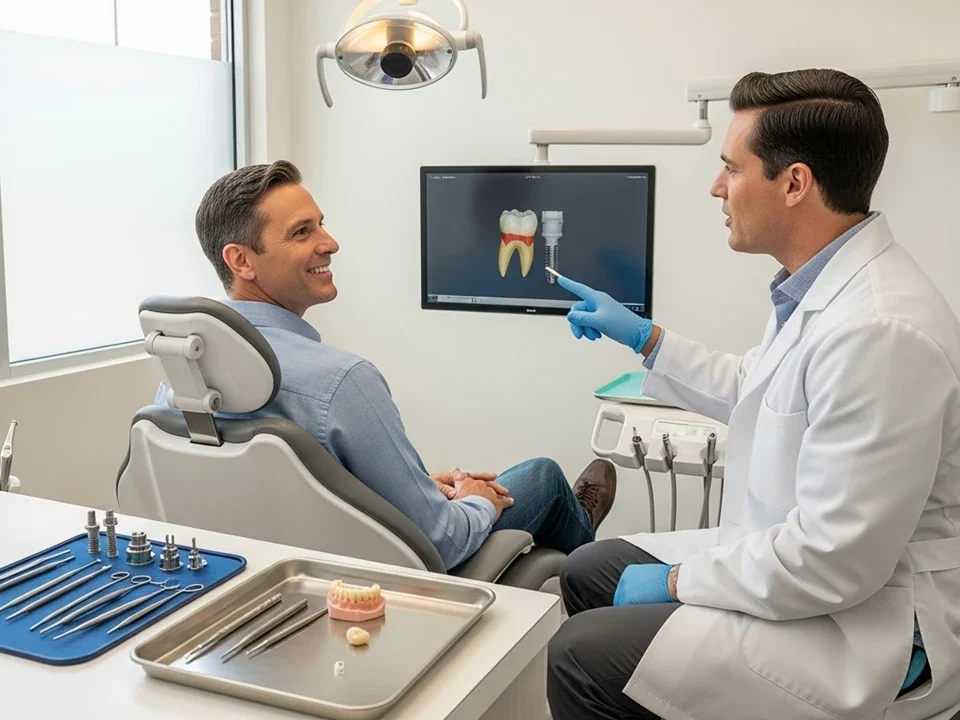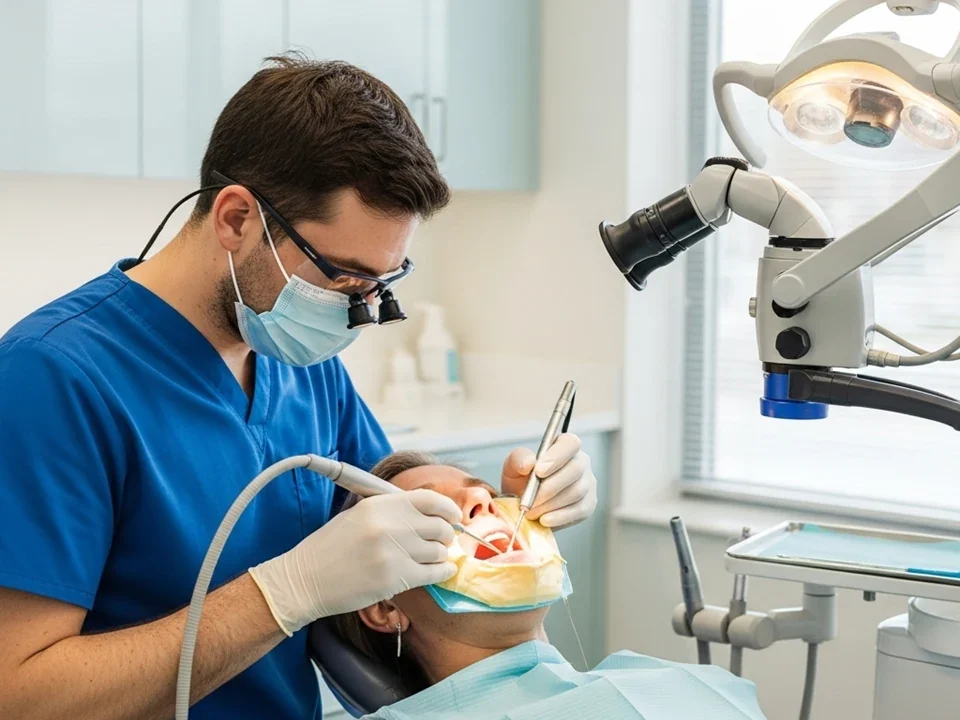
How Long after a Tooth Extraction Can I Eat?
August 21, 2025
When Can I Drink Coffee After Wisdom Teeth Removal?
August 28, 2025Missing teeth, tooth pain, and bone loss in the jaw can lead to more serious issues if not treated early. One of the most trusted solutions for these problems is dental implants. This guide explains the top 8 signs you need dental implants.
Table of Contents
TogglePersistent Tooth Pain
Strong and ongoing pain in your tooth often means damage inside the tooth or deep infection. When pain does not go away after brushing, flossing, or using medication, the tooth may no longer be healthy. A dead or damaged tooth can affect nearby teeth if left untreated.
Loose or Shifting Teeth
Teeth that move or feel loose in your mouth should not be ignored. This often means the bone around the teeth has weakened. Gum disease or infection usually causes this issue. Teeth that shift or spread apart also affect how you chew and speak. One of the most important signs you need dental implants is when your natural teeth no longer feel secure or steady.
Missing Teeth Affecting Your Life
A missing tooth can create many problems. It can change how you eat, speak, and smile. Some people avoid certain foods or hide their smile in photos. When teeth go missing, the jawbone in that area begins to shrink. This leads to more dental problems over time. One of the most common signs you need dental implants is when a missing tooth makes daily life harder.
Click Here to learn about the Best Dentistry in Avondale, AZ.
Severe Gum Recession
When gums pull away from the teeth, it often means gum disease is present. Receding gums expose the roots of your teeth and leave them open to bacteria. This makes your teeth feel sensitive to hot or cold. It also increases the risk of infection. As gums shrink, they also reduce support for your teeth. Severe gum problems are one of the key signs you need dental implants.
Difficulty Chewing or Eating
Pain or discomfort when eating is a warning that something is wrong in your mouth. You may avoid chewing on one side, or stop eating hard or chewy foods. If missing or damaged teeth cause this issue, it is a sign of poor bite function. Dental implants can help restore your chewing ability. One of the clearest signs you need dental implants is when normal eating becomes difficult or painful.
Chronic Bad Breath
Bad breath that lasts for days or weeks may come from infection or tooth decay. Bacteria often gather around broken teeth or empty spaces in the mouth. If brushing and mouthwash do not fix the problem, there may be an issue under the surface. Removing infected teeth and replacing them with implants can stop the odor. Ongoing mouth odor is one of the warning signs you need dental implants.
Ill-Fitting Dentures
Dentures that slip or cause pain can harm your gums and affect your speech. Some people need glue or strips to hold dentures in place, which can feel uncomfortable or unreliable. Over time, bone loss under the dentures can make them fit poorly. Dental implants can hold dentures securely in place. Trouble with your dentures is one of the signs you need dental implants.
Changes in Your Facial Structure
Tooth loss can change the shape of your face. Without teeth, the jawbone shrinks and the cheeks can sink in. This may cause your face to look older or hollow. Replacing teeth with implants helps protect the bone and maintain the shape of your face. If you see a change in your jaw or smile, it is one of the signs you need dental implants.
Let’s Recap
Tooth pain, missing teeth, shifting teeth, or changes in your bite all point to deeper problems in the mouth. These are not issues to delay. Dental implants give long-term support to your mouth and stop further damage to your teeth and jaw. If you notice one or more signs you need dental implants, speak to the best dentist in Avondale, AZ.
FAQs
What are common signs that I might need dental implants?
Missing teeth, loose dentures, difficulty chewing, or shifting teeth could mean you need implants to restore function and stability.
Can gum disease be a sign I need dental implants?
Yes, advanced gum disease can lead to tooth loss, which may require implants once the gums and bone are treated.
Do dental implants help with jawbone loss?
Yes, implants can stop bone loss by stimulating the jaw like natural tooth roots, which helps preserve facial structure.
Do I still need an implant if I have one missing tooth?
Even one missing tooth can cause nearby teeth to move. A single implant can keep your bite aligned and healthy.
Are loose or uncomfortable dentures a reason to consider implants?
Yes, if your dentures slip or cause discomfort, implants can provide a more secure and natural-feeling solution.





